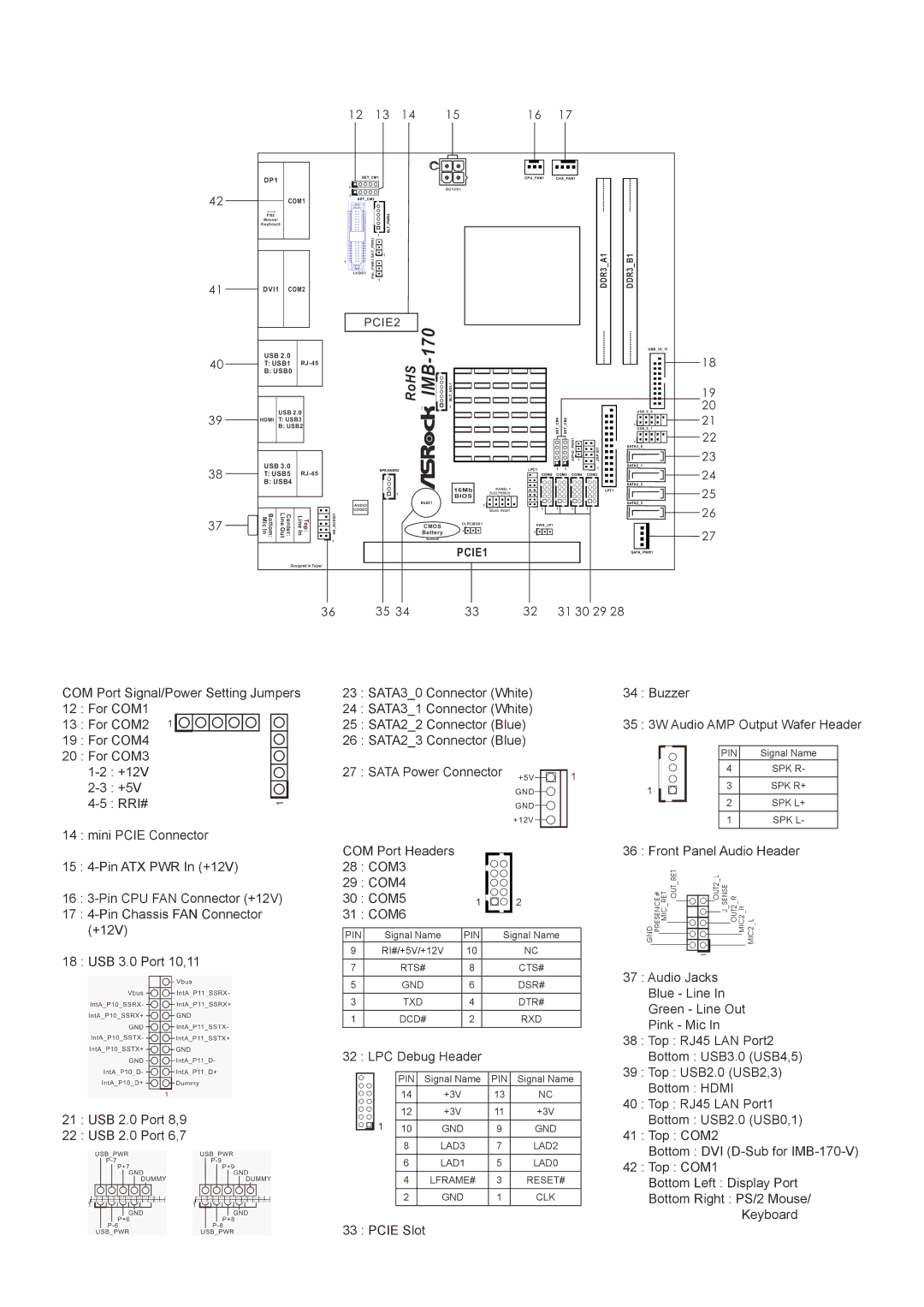IMB-170-V specifications
The ASRock IMB-170-V is a compact and feature-rich industrial motherboard designed for a variety of applications demanding reliability and performance. Ideal for embedded solutions, digital signage, thin clients, and automation, this motherboard integrates advanced technologies to maximize functionality while ensuring durability.One of the standout features of the IMB-170-V is its support for Intel’s 6th and 7th generation Core processors, commonly known as Skylake and Kaby Lake. This compatibility allows users to harness the processing power of these CPUs while benefiting from energy efficiency and lower heat generation. The board supports a maximum of 32GB DDR4 RAM via two SO-DIMM slots, offering ample memory bandwidth for multitasking and resource-intensive applications.
The IMB-170-V incorporates a wide range of connectivity options, including multiple USB 3.0 and USB 2.0 ports, allowing for fast data transfer and the connection of various devices. Furthermore, it features a Mini PCIe slot, which facilitates the addition of wireless communication modules, such as Wi-Fi and Bluetooth, enhancing connectivity for IoT applications.
In terms of video output, the motherboard supports dual displays via HDMI and VGA ports, accommodating diverse display needs in various environments. This dual-display capability is crucial for applications such as digital signage, where multiple screens often display information concurrently.
Another essential aspect of the ASRock IMB-170-V is its built-in hardware monitoring capabilities, which ensure system stability and longevity. The board features temperature sensors and fan control, which are essential in industrial settings where thermal management is critical to maintaining operational efficiency.
The IMB-170-V also emphasizes reliability with its industrial-grade components that meet stringent quality tests. This makes it suitable for use in challenging environments that demand robust performance without failure.
In addition, the motherboard’s compact size makes it an excellent choice for space-constrained applications. It can be easily integrated into various chassis, aiding in the development of compact systems tailored to specific industrial applications.
In summary, the ASRock IMB-170-V is engineered to meet the demands of modern industrial computing. With its support for powerful processors, extensive memory options, versatile connectivity, dual display capabilities, and robust design, it positions itself as an exceptional choice for developers and integrators in the industrial sector.

